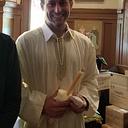Angola and the Ideology of Privatization
“The atomic unit of propaganda isn’t lies, it’s emphasis.”
- Media critic Adam H. Johnson.
The art of propaganda is a subtle and insidious thing. To understand this, a 2008 article issued by the Council on Foreign Relations offers an insightful case study. The topic of the article is the developing African nation of Angola, specifically it’s state-owned oil company, Sonangol. The article describes Sonangol as “perhaps the most significant barrier to more robust and transparent Angolan political institutions.” The article seems to argue that the country’s oil revenues are being misused, saying “According to a report issued by the British investigative group Global Witness in 2004, nearly $1.7 billion disappeared from the government’s budget between 1997 and 2001.” However, the article repeatedly undermines its central premise as it seeks to make its argument. However, this is not an accident or a mistake- it is a deliberate concealment of the pro-free market privatization agenda of the people who published this article.
Firstly, the article’s fundamental theme is Angolan corruption, but it calls into question its own claim. It admits “Sonangol is regarded by its international oil industry peers as an extremely well-run operation. Even during Angola’s civil war, the company repaid its oil-backed loans and stuck to its contracts.” A general hallmark of corrupt institutions is that they, by definition, are not run well and don’t honor such agreements. The premise of the article seems to be made invalid, but this key fact is treated as more or less a throwaway line. So why is the implication of this article that the company is bad for Angola’s development?
Two other lines of the article give the game away. The first, immediately following the one I examined in the previous paragraph, states that “It has also negotiated some of the most favorable terms of any African country for its contracts with foreign oil companies.” Immediately in the next paragraph, the article states the position of the World Bank that “the company could contribute to Angola’s development by training Angolans to work for foreign oil companies, increasing fuel storage capacity, investing in social projects, and improving fuel distribution to interior regions.” Again, this is in spite of the fact that the article later goes on to acknowledge that Angola (with the help of its ally and trading partner China) is in fact developing large amounts of infrastructure, which helping to its success at lifting people in the country out of poverty. At the WTO’s recent meeting in December 2017, Angola’s Minister of Trade, Joffre Van-Dunem, announced that the country is on track to become a middle-income nation by 2021.
For context, Angola has fought a decades-long struggle to control its own destiny as a nation. Subjected to long years of oppressive, racist apartheid under the rule of Portugal, it finally threw off its colonial chains in 1975, led by the socialist resistance group MPLA (Popular Movement for the Liberation of Angola). Their liberation struggle had only just begun however, as they soon found themselves engaged in a bloody civil war against rebels backed by the CIA as well as apartheid South Africa and Israel, with the conflict only ending in 2002. MPLA has remained in power ever since the civil war ended, and while some critics say they have abandoned socialism, one principle they still profess to hold is keeping the country’s oil resources owned by the state and using its profits to benefit the people.
Returning to the article, it argues that Angola should be training its people to work for foreign oil companies rather than its own. This is in spite of the fact that, as we have already seen, said foreign companies themselves admit that Sonangol is very well run and does a good job of training its workers. So who would Angolans working for foreign oil companies benefit? It would benefit said foreign companies first and foremost, with any benefits to Angolans being tangential at best. The country clearly wants to develop in its own way, and not one that strictly adheres to the neoliberalism of the Washington Consensus.
Since the end of the Cold War, the Washington Consensus (which emphasizes among other things privatization, unrestricted trade, deregulation, etc.) model for international development has predominated all across the world-in spite of the fact that many of the greatest successes of development are in spite of what the Washington Consensus describes. China and the so-called “Asian Tigers” such as South Korea developed advanced economies with high degrees of planning and emphasis on building up domestic industries. These countries tended to either be socialist, like China, or borrowed methods from socialist competitors on their borders who threatened to overtake them, such as South Korea, whose economy actually lagged behind the North until the 1980s.
Angola does not reject every prescription of the Washington Consensus, but it is clear that it wants to go its own way. Despite tacitly acknowledging that it’s path seems to be working, the article reinforces the ideology that the only way to develop is the way that Very Serious People who make the conventional wisdom in the west say is the right way, because it reflects their interests. In an era where following the conventional wisdom has led us to disaster after disaster, from Iraq to the financial crisis, maybe it is time to look at narratives like the one advanced in this article with a greater degree of skepticism.
